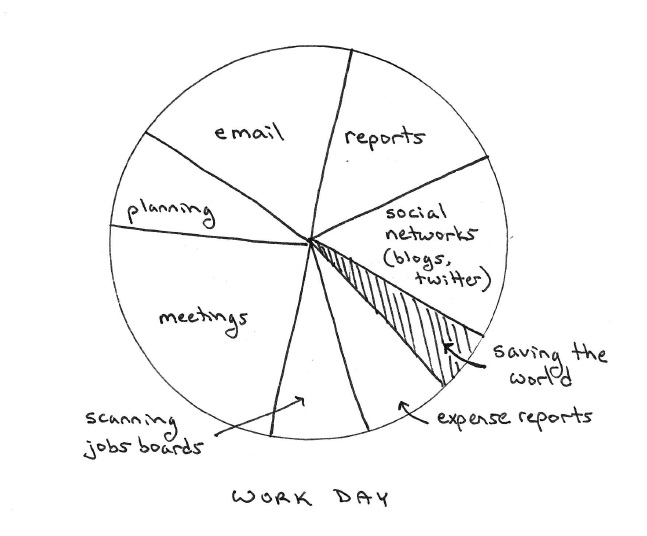
A lot of people think pretty deep thoughts about the nexus of humanitarian aid and social media. I'm not one of them. Nevertheless, I started blogging and tweeting about international development and humanitarian aid a couple of years ago. Here's what I've learned so far.
1. Applied Creativity
I don't know if creativity is a finite thing, but I do know that once I started blogging and tweeting, I began using a greater measure of it for things of questionable value.
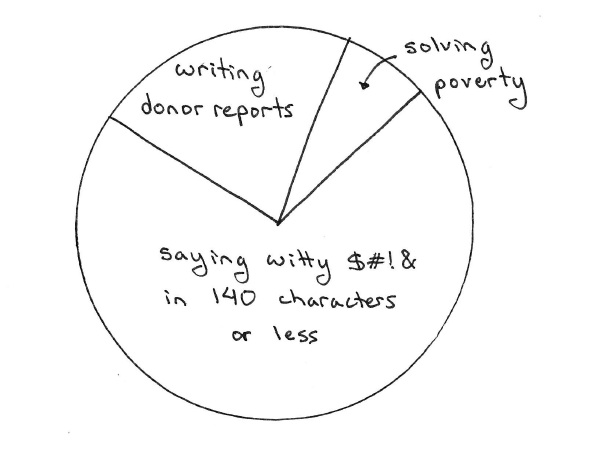
2. The Big Trade Off
Choose how you use your time wisely. Somewhere along that line is a praxis sweet spot where action learning, reflective work, and contemplative activism takes place.
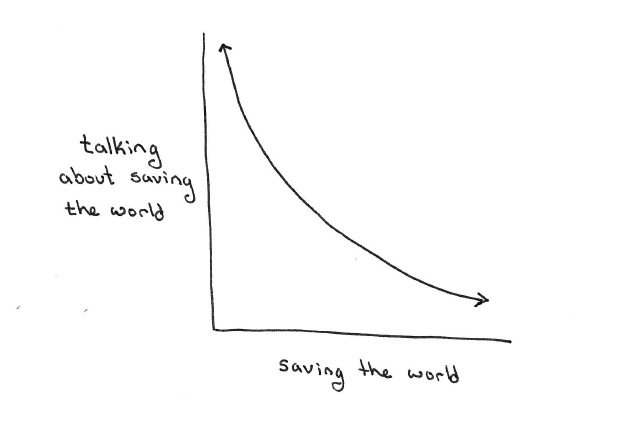
3. Snark Love
If you're insecure about your positions, your social network following will likely plateau with your mom. You don't really have to be snarky, but it helps to have an opinion and the ability to express it strongly and succinctly.
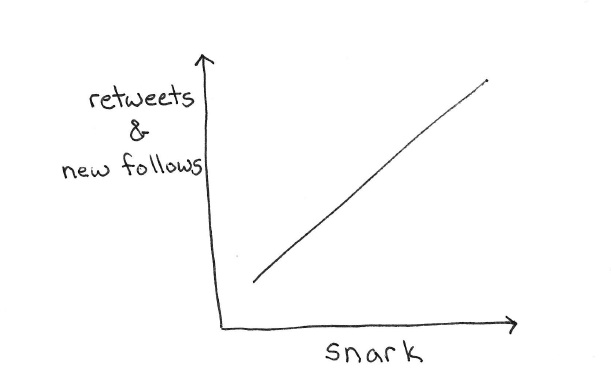
4. Following to Death
You can't drink from a fire hose. There's so many Twitter feeds, blogs, chatty colleagues and other sources of news and information out there, its very easy to end up with information overload. Don't follow everyone who follows you; don't subscribe to every blog on topic; don't be afraid to unfollow people who live-tweet their pedicure. You have to put some filters on this stuff.
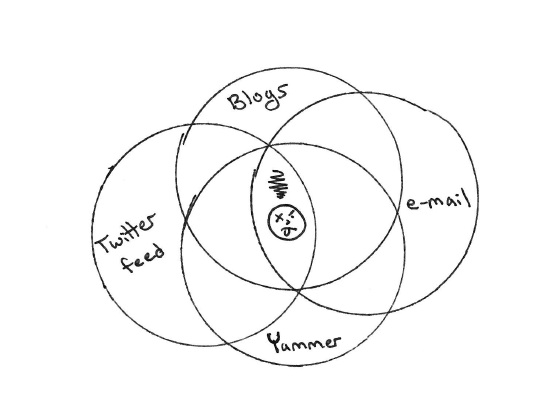
5. Expertise in the Mirror
Go to a new country and in three weeks you can write a book; in three months you can write an essay; in three years you have nothing to say. I was always so dismayed when my grandfather, who had a Ph.D in theology would invariably answer every question I had about God with "I don't know." It's starting to make sense now.
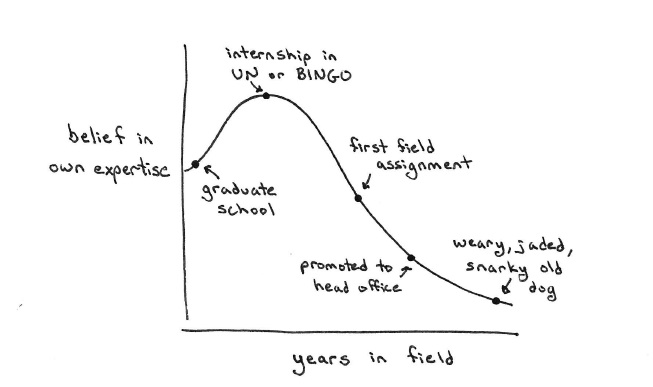
6. Inspiration
A few blogs are actually deeply informed by direct experience with aid beneficiaries -- those that we often lazily referred to as 'the poor.' And these are special things (think Owen Scott's series on PlayPumps). But many blogs are simply opinionated responses to op-eds and articles and other blogs. It seems we write for each other about each other as often as not. It's not so much navel gazing as it is cliquey aloofness. This post for example.
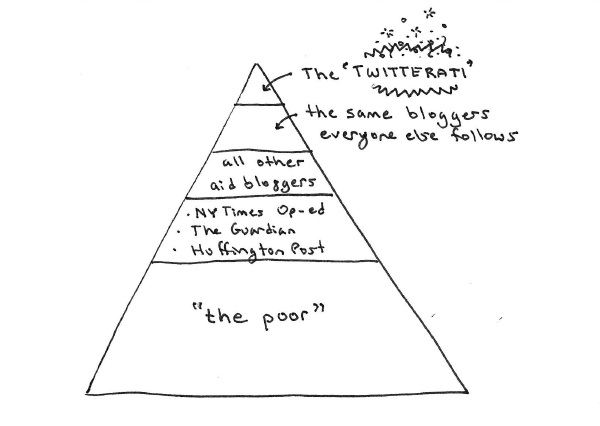
7. Anatomy of a Dog Pile
Dog piles are killer fun! They can also be effective at actually getting miscreants' attention and changing their stupid behavior, whether they're a BINGO or a lone individual. Granted, its like a month of aid bloggers falling over themselves to repeat what's already been said or be the first to write a compendium of all the other posts. But, not every bad aid blunder gets a dog pile -- it helps to be in the trifecta sweet spot.
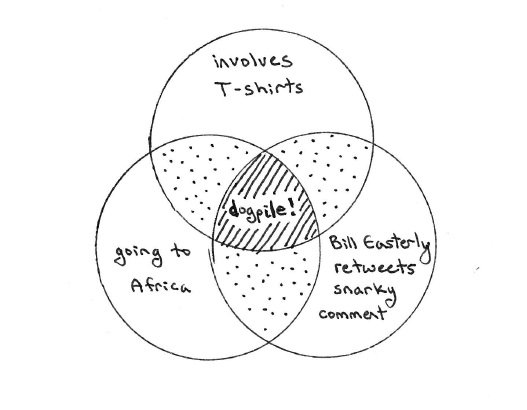
8. The Inequality of Influence
Don't feel bad if your Twitter feed doesn't garner 10,000 followers or your FB page isn't 'liked' to the tune of six-figures or it takes two years for your blog to attract 25,000 page views. Real influence is a rare thing -- if you're writing to garner or demonstrate influence, your probably self-deluded. Here's a little game -- grab some ice cream and locate yourself on this chart. Be honest. Be okay with it. Write on. Right on.
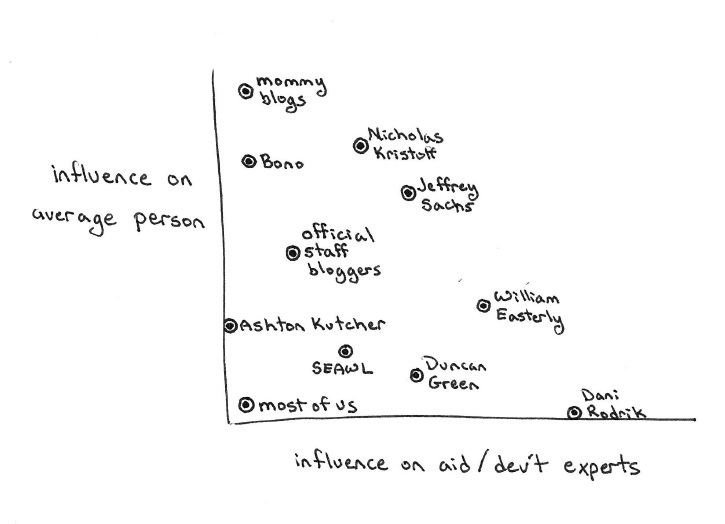
9. The Big Crowd Out
Professional aid work is already so cluttered with organizational demands, sometimes it feels like we're feeding a machine rather than helping feed the hungry. We have to take care that our social networking activities don't further crowd out the doing of the real work for which we joined this sector. There are diminishing returns for how much of this you do. (Imagine an alternative chart for this.) What the donors and bosses don't know about how a 'real aid professional' spends their day might not hurt them, but it may very well hurt our collective efforts to address famine, human trafficking, gender violence, educational quality, water scarcity, and so on and so forth.
